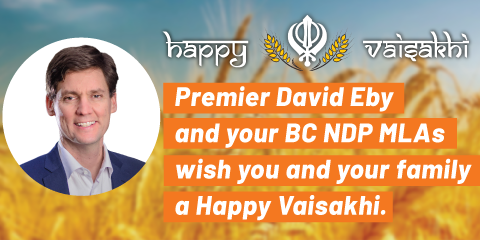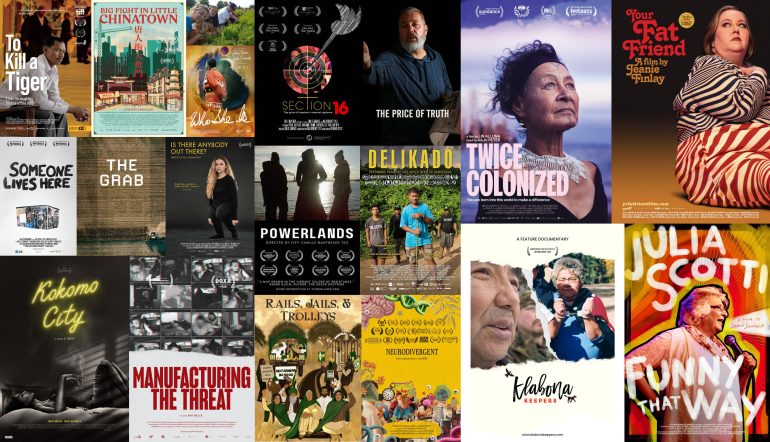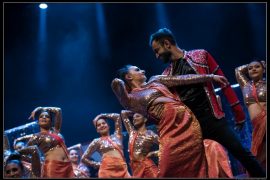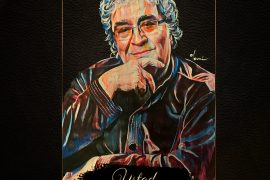Surrey, B.C. – KDocsFF is marking its 10th annual film festival this year, celebrating an evolution from a movie night to Metro Vancouver’s Premier Social Justice Film Festival.
Opening on Feb. 21 at the Vancouver International Film Centre, the day following World Day of Social Justice, the festival embodies a decade-long commitment to bringing critical social issues to the forefront through documentary film and activism.
United under the theme of “Journeys in Solidarity,” this year’s festival will feature 19 films from nine countries. Notably, nine films will make their Canadian premiere at KDocsFF, and 14 films are created by female and non-binary filmmakers.
“All 19 films present the different and often difficult journeys undertaken by individuals, organizations, and communities in fighting for social justice at home and abroad,” says KDocsFF founder and festival director Janice Morris. “What these films reveal is that no social justice sojourner travels alone. All act both in and from solidarity — with other sojourners, organizations, communities, and the natural environments they inhabit. Perhaps solidarity is the defining and necessary ingredient when pursuing social justice.”
This year, the festival added a new feature where each day is dedicated to a unique theme, exploring various social issues.
Feb. 21: Liberating the Body Politic
- Opening day explores the ethics and politics of body sovereignty and identity exploration, and the impact of societal norms and biases on individuals navigating these challenges. Films premiering in Vancouver and Canada on this day include Neurodivergent by Afton Quast Saler, Is There Anybody Out There? by Ella Glendining and Your Fat Friend by Jeanie Finlay. The special opening night presentation features the Canadian premiere of Susan Sandler’s Julia Scotti: Funny That Way, followed by a standup performance by comedian, author, and film subject Julia Scotti.
Feb. 22: Radical Humanity
- Presenting the human spirit’s resilience in standing up against systematic challenges, this day will feature Henna Mann’s Rails, Jails & Trolleys, Karl Malakunas’s Delikado and Nisha Pahuja’s To Kill a Tiger.
Feb. 23: Decolonizing Power
- This theme explores the resilience and activism of Indigenous Peoples in the face of cultural destruction, colonialism, and gender-based violence. Notable features of the day include The Klabona Keepers, co-directed by Tamo Campos and Jasper Snow Rosen, Powerlandsby Ivey Camille Manybeads Tso, and Twice Colonized by Lin Alluna.
Feb. 24: Resisting Erasure
- The focus on day four will be on stories of cultural preservation and rethinking the importance of community in modern society, with films such as Kokomo City by D. Smith. Other features include Someone Lives Here by Zack Russell and Big Fight in Little Chinatown by Karen Cho.
Feb. 25: Preserving Democracy
- The ongoing struggle for truth and justice underscores the festival’s closing day. Feature films include Amy Miller’s Manufacturing the Threat and the Canadian premiere of Patrick Forbes’s The Price of Truth.
The festival also features an exhibitors’ hall where guests can connect with activists and organizations to gain practical insights and find ways to get involved in today’s most pressing social issues and campaigns. Among this year’s exhibitors are Amnesty International, BC Civil Liberties Association, Learning Disabilities Association, Moving Forward Family Services, Salal Sexual Violence Support Centre, the Network to Eliminate Violence in Relationships (NEVR), Women Transforming Cities, Hogan’s Alley Society, and others.
“KDocsFF goes beyond the traditional concept of a film festival. We create an immersive, interactive space that encourages dialogue and invites active engagement with today’s most pressing social issues,” says Morris.
Tickets can be purchased here and are $7 a film, including panel discussions and Q&A sessions, or $50 for an all-access festival pass. Tickets for opening and closing night special presentations also include a reception. Admission is free for all self-identifying Indigenous Peoples. Find the full schedule here.






